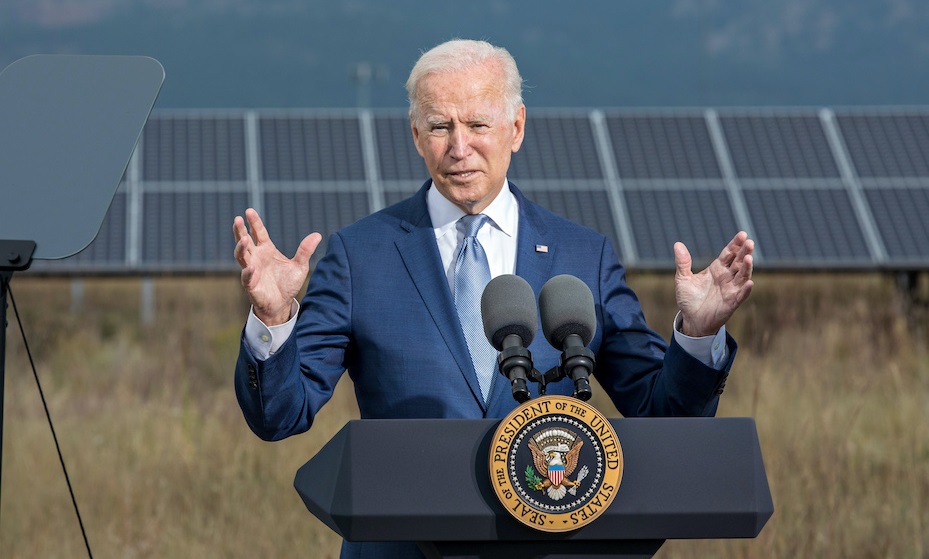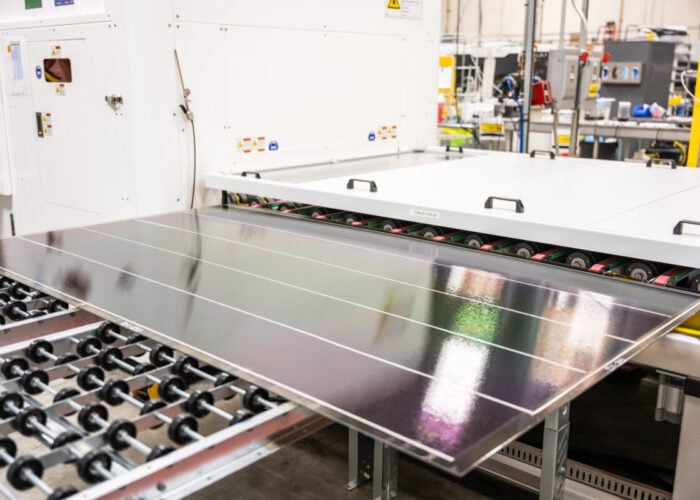
Pressure is mounting on policymakers in the US to push through incentives to stimulate domestic clean energy manufacturing in the country after a turbulent week for US solar.
Today more than 100 clean energy manufacturers and developers have addressed a letter to US President Joe Biden, Congress leader Chuck Schumer, speaker Nancy Pelosi and chairs of the Committee on Finance and Ways and Means Committee calling for tax incentives to be passed within federal budget reconciliation legislation.
Unlock unlimited access for 12 whole months of distinctive global analysis
Photovoltaics International is now included.
- Regular insight and analysis of the industry’s biggest developments
- In-depth interviews with the industry’s leading figures
- Unlimited digital access to the PV Tech Power journal catalogue
- Unlimited digital access to the Photovoltaics International journal catalogue
- Access to more than 1,000 technical papers
- Discounts on Solar Media’s portfolio of events, in-person and virtual
The letter, signed by the likes of First Solar, Maxeon Solar, Enphase Energy, Q CELLS and Silfab Solar, alongside US-based producers of steel, polysilicon and other key components, states the companies’ support for a swift passage of tax provisions which they say will strengthen the US’ manufacturing and production of clean energy.
“Passage of the energy tax provisions would allow domestic production and manufacturing to advance US leadership in the trillion-dollar global clean energy market. With these policies in place, we can invest in production and manufacturing in the United States,” the letter states.
“The provisions will not just grow existing producers, it will lead to repatriating manufacturing jobs and sectors, the restarting of idled facilities, and producers and factories filling orders and supplying equipment for power plants and energy production facilities nationwide.”
Plans for investment tax credits for solar energy manufacturers producing solar components in the US, right the way through from polysilicon production to module assembly, have been on the table for more than nine months. In June last year Jon Ossoff, the Democrat senator for Georgia, unveiled the Solar Energy Manufacturing for America Act, or SEMA, which would introduce tax credits for domestic manufacturers of solar goods.
While SEMA has proven popular among policymakers and manufacturers alike, its inclusion within President Biden’s Build Back Better Act, the name given to his budget reconciliation package, has meant its progress has largely stalled. The act passed the House of Representatives in November last year but has yet to gain Senate approval, with Democrat Joe Manchin so far refusing to back the complex package of measures.
Coordinating today’s letter is trade body the Solar Energy Industries Association (SEIA), which notes that the solar industry alone will need 2.5 million tons of steel each year by the end this decade.
“The clean energy deployment and manufacturing incentives being considered by Congress are the blueprint to solving our energy security issues and would drive historic growth in domestic manufacturing and production. Manufacturers need policy certainty to make these capital investments,” Abigail Ross Hopper, president and CEO at SEIA, said.
Scott Moskowitz, director of market strategy and public affairs at Q CELLS America, said the US had a “generational opportunity” to create tens of thousands of jobs in solar energy manufacturing in the US.
“With these policies we can lower energy costs and grow our manufacturing base, but without them our supply chains will remain strained and our clean energy future will be at risk. It’s imperative that that we pass this legislation as soon as possible,” he said.
The letter comes in the same week that solar imports to the US from Southeast Asian nations including Malaysia and Thailand have become imperilled by the launch of an investigation into alleged circumvention of antidumping and countervailing duties by the Department of Commerce.
The investigation, which could take up to a year, could result in tariffs of up to 250% being imposed retrospectively on imports, a move which has been widely criticised by solar developers in the US.
Meanwhile, this week has also seen the White House include funding for a Department of Energy-led programme to support domestic solar manufacturing in the US in its draft federal budget for the 2023 financial year.
Forming part of a US$48.2 billion budget request by the US Department of Energy is US$200 million for what’s described as a Solar Manufacturing Accelerator, a fund targeted at bolstering the country’s supply chain for solar energy technologies.
No specific details regarding the programme have been published as of yet. The full proposed budget document, published by the White House, does however add that it will look to “build domestic capacity in solar energy supply chains while moving away from imported products manufactured using unacceptable labor practices”.
The US has taken several steps to halt the import of solar PV products with links to alleged forced labour practices in the Chinese region of Xinjiang, including last year’s Withhold Release Order, which continues to target products using silicon produced by Hoshine Silicon Metal, and the more recent Uyghur Forced Labor Prevention Act, which is to forbid the import of products from Xinjiang unless the importer can prove the absence of forced labour practices within its supply chains.






